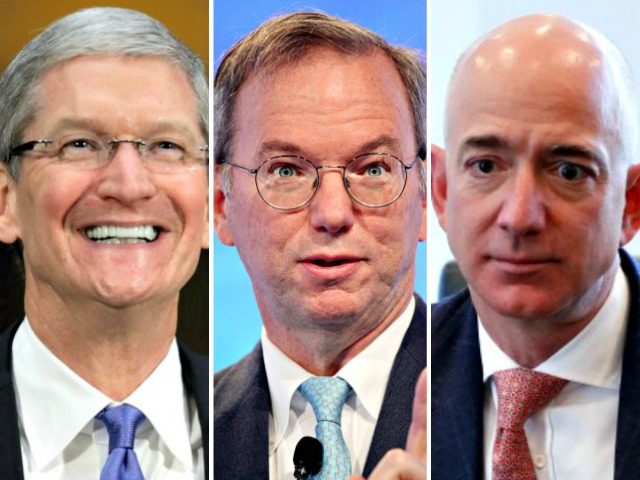The New York Times published an article how hard it is to boycott tech companies such as Facebook and Google when they dominate so much of the tech landscape.
The article published in the New York Times is titled “They Tried to Boycott Facebook, Apple and Google. They Failed,” and describes just how hard it is to organize boycotts against tech corporations that have become so heavily ingrained in people’s everyday lives. The Times uses an ironic tweet as their first example of how hard it is for activists to take a stand against companies they oppose while still using their devices and platforms;
Ryan Knight, a Democratic activist in Los Angeles, called for a boycott of Apple in February because it hadn’t responded to calls to delete a channel from the National Rifle Association from its streaming-video service after the Parkland, Fla., school shooting.
“Dear @Apple,” Mr. Knight wrote on Twitter. “Your silence is deafening. #BoycottApple.” More than 330 accounts retweeted the message.
How did Mr. Knight post the message? He used an iPhone.
The Times also noted that those attempting to boycott Google have faced similar problems;
People looking to punish major tech companies by abstaining from their products have been bedeviled time and again by the difficulty in escaping them. After Google fired an engineer, James Damore, for criticizing the company’s diversity efforts last year, hundreds of people on social media called for a boycott of the company. But an analysis of nearly 7,000 tweets using the hashtag #BoycottGoogle since August showed that 26 percent of the tweets came from devices using Google’s Android software, according to Keyhole, a social-media research firm.
One Twitter account named Milton Prescott tweeted on Aug. 8: “Google’s firing of James Damore proves his point completely. I will no longer be using Google for any services. #BoycottGoogle.” The tweet came from an Android device. A message to the account went unreturned.
And as these digital giants continue to expand their influence into the real world, it’s beginning to become harder for consumers to understand exactly where their money is going;
Marisa Richardson, a program manager at a life-sciences company, said she began boycotting Amazon recently after learning that it offered the NRA channel on its streaming-video service. So when she needed laundry detergent, she avoided the e-commerce site and instead braved the crowds and traffic — and spent a few dollars more — at a nearby Target.
But a few days later she shopped at the Whole Foods near her home in Oakland, Calif. “I completely forgot that they’re owned by Amazon,” she said.
After the shooting in Parkland in February, gun-control activists called for a boycott of certain Apple and Amazon services because they hosted the NRA channel.
People used the hashtag #March1NRABoycott to spread the message on social media. An analysis of about 58,500 tweets with the hashtag showed that nearly half came from an iPhone or an iPad, according to Keyhole. Those included popular tweets using the #March1NRABoycott hashtag from the actress Alyssa Milano.
“Had I sent the same tweets from an Android phone, the same issue would apply. There is an NRATV app for Android phones,” Ms. Milano said through a spokeswoman. “We are only just beginning to understand how these companies have infiltrated not only our ideologies, but also our lives in the most in-depth way imaginable.”
Read the full article in the New York Times here.

COMMENTS
Please let us know if you're having issues with commenting.